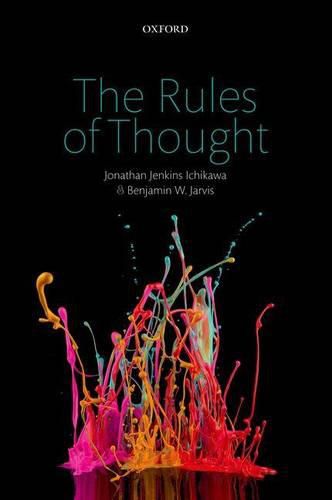Readings Newsletter
Become a Readings Member to make your shopping experience even easier.
Sign in or sign up for free!
You’re not far away from qualifying for FREE standard shipping within Australia
You’ve qualified for FREE standard shipping within Australia
The cart is loading…






The Rules of Thought develops a rationalist theory of mental content while defending a traditional epistemology of philosophy. Jonathan Jenkins Ichikawa and Benjamin W. Jarvis contend that a capacity for pure rational thought is fundamental to mental content itself and underwrites our quotidian reasoning and extraordinary philosophical engagement alike. Part I of the book develops a Fregean theory of mental content, according to which rational relations between propositions play a central role in individuating contents; the theory is designed to be sensitive not only to Frege’s puzzle and other data that have motivated rationalist conceptions of content, but also to considerations in the philosophy of mind and language that have motivated neo-Russellian views. Part II articulates a theory of the a priori, and shows that, given the framework of Part I, it is very plausible that much philosophical work of interest is genuinely a priori. Notably, it is no part of the picture developed that intuitions have an important role to play, either in mental content, or in the epistemology of the a priori; Part III defends this departure from rationalist orthodoxy.
$9.00 standard shipping within Australia
FREE standard shipping within Australia for orders over $100.00
Express & International shipping calculated at checkout
The Rules of Thought develops a rationalist theory of mental content while defending a traditional epistemology of philosophy. Jonathan Jenkins Ichikawa and Benjamin W. Jarvis contend that a capacity for pure rational thought is fundamental to mental content itself and underwrites our quotidian reasoning and extraordinary philosophical engagement alike. Part I of the book develops a Fregean theory of mental content, according to which rational relations between propositions play a central role in individuating contents; the theory is designed to be sensitive not only to Frege’s puzzle and other data that have motivated rationalist conceptions of content, but also to considerations in the philosophy of mind and language that have motivated neo-Russellian views. Part II articulates a theory of the a priori, and shows that, given the framework of Part I, it is very plausible that much philosophical work of interest is genuinely a priori. Notably, it is no part of the picture developed that intuitions have an important role to play, either in mental content, or in the epistemology of the a priori; Part III defends this departure from rationalist orthodoxy.